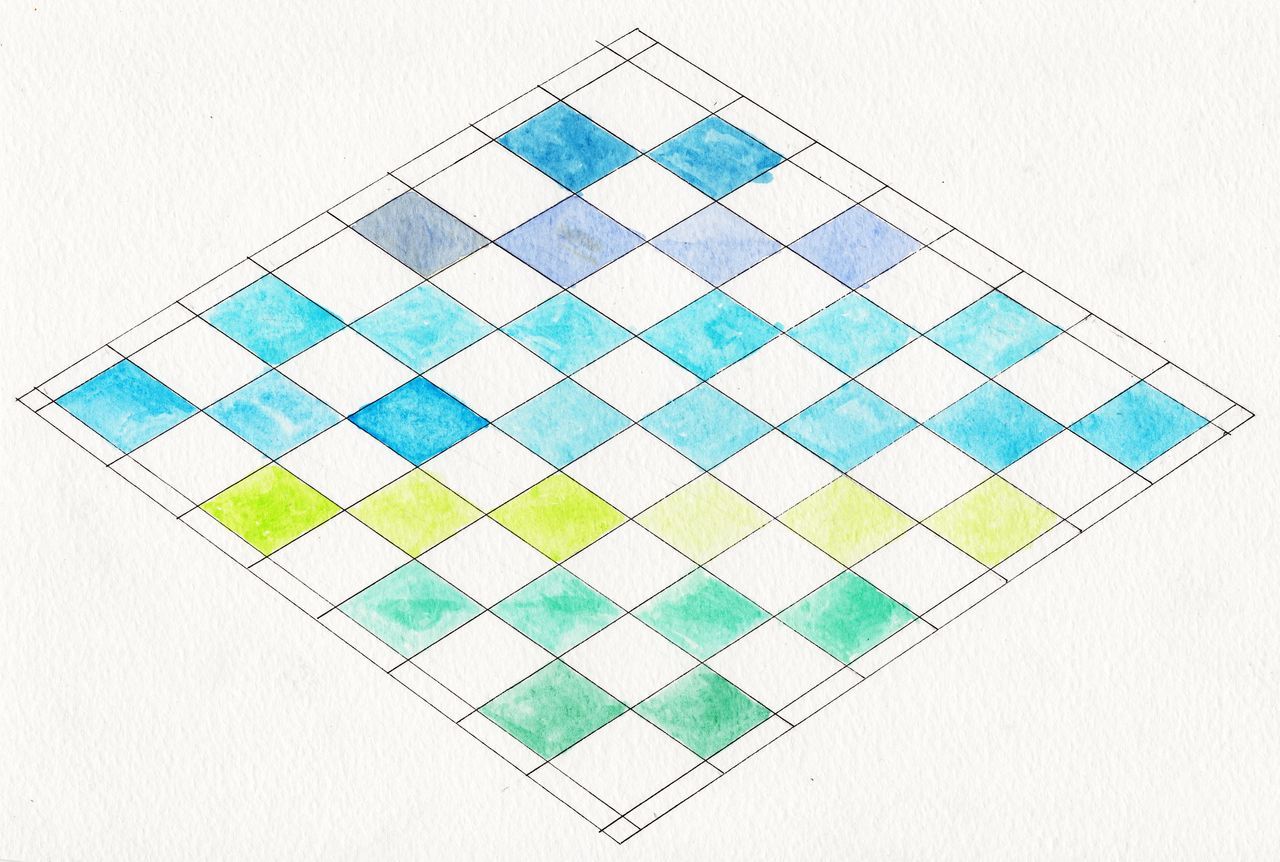Chess

My chess rating hovers around 1200, which puts me in the bottom 20% of people on the website. That isn't very good. But I love the game anyway.
Chess is a scary game for people whose careers are built on their minds. Which is most. Even though we use our critical thinking, memory, or creativity every day, we no longer contend with the cold precision of an exam grade or an SAT score. We might be using a sliver of genius abilities, or squeezing every drop out of a low IQ by hard work and determination. We don't know.
But chess knows. Most competitions and websites use the ELO system – a precise, mathematical calculation of wins and losses that produces a numerical rating. After every game, you see how many points you've lost or gained. The score comes with a deviation which indicates how accurately the machine can predict your performance: as it decreases, your winning odds should bend closer and closer to 50/50.
If chess ratings are precise and there are entire studies about how chess ability correlates with intelligence, then playing chess is confronting the possibility that we're not as smart as we think we are.
Or is it? The more that I played, the more I realized that I was losing games because I was distracted. With Netflix in another tab, I'd accidentally lose key pieces.
Concentration is elusive. In "Conversations with Tyler", the interview series with Tyler Cowen (ELO 2230), chess is frequently a topic. He'll ask people like Peter Thiel (ELO 2199) about favorite openings and defenses. But curiously in Cowen’s interview with Garry Kasparov (ELO 2812), Garry talked about concentration, not intelligence.
The reason I put Wesley ahead of two others is that he has phenomenal concentration, absolutely phenomenal, and that's very important. These days, concentration trumps everything.
There are levels of distraction below the threshold that I'd call myself distracted. Having a conversation while worrying about something. An emotional current running in a stream of thought. In meditation, you notice this and gently pull yourself toward the breath. In chess, you lose. You lose and you drag yourself back into focus and the feedback is immediate and gratifying. Chess is biofeedback.
Once you have concentration, you realize that there's another layer: rigor. It's checking the timer, checking for threats, checking for any of a litany of potential mistakes you might be about to make, a smorgasbord of straightforward opportunities you might miss. Simple rules are easy to forget when you're feeling the rush of an advantage. But they never become less important.
And then there's research. Grandmasters have formalized principles and strategies for centuries, passing down knowledge that makes 21st century gameplay starkly different than the stunts players were pulling in the 1850s. These patterns allow you to connect moments of games together. They let you look at a good move and say what makes it good.
COWEN: Someone who was in the candidates’ matches but never champion. You give them a 2017 openings database that they can use, and no one else ever has access to. How much stronger a player do they become?
KASPAROV: It could be quite a significant progress.
But then there's intelligence, that thing, so hard to track down. It is the remainder. It's the the part that exists between development, attacks, and counter-attacks. It is the part that makes Garry Kasparov Garry Kasparov and me not him. Does it furcate further - into multiple intelligences? Science uncomfortably suggests that it doesn't, that there's a single factor tying it all together.
When I came to chess, I feared what it would show me about my mind. I still do – that I'll be unable to reach 1400 or beyond, and be found out. Whatever you worship eats you alive, and I'll admit that I want to be smart.
But playing more I noticed that when I was calm and focused I did better, and that no amount of white-knuckled effort could make up for a lack of sleep. That reading theory was key to the game, and that few successful players have become great without study.
It broke apart a monolithic idea of intelligence, placing comfort and self-care right next to intellectual brawn. Maybe it's appropriate, now that computers are the unquestioned champions of the game, that chess is now a vehicle for us fleshy vessels to better understand our complicated and finicky abilities.